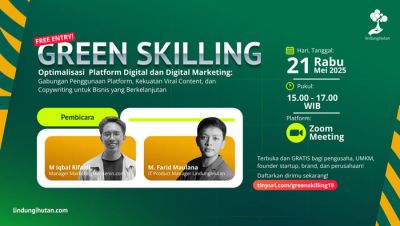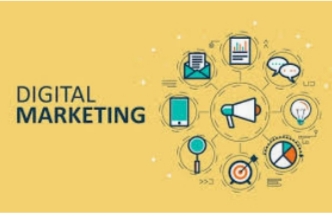Examples of Application of Artificial Intelligence for Digital Marketing

Application of Artificial Intelligence for Digital Marketing
GuideBook - Role Artificial Intelligence (AI) in various aspects of life to make consumers more comfortable. Like it or not, marketing organizations must take advantage of it.
Application AI, such as smart devices, chatbots, smart applications, and more sophisticated, self-driving cars, have been felt by consumers.
A study conducted by Pegasystem found that 55% of consumers who have used AI feel comfortable interacting with businesses/companies that use the technology. Study titled "What Consumers Really Think About AI: Global Study" also revealed, 38% of consumers agree that AI in the future can improve customer service.
With these facts, the application of AI in the area of ??marketing certainly can not be ignored. Based on a number of statistics compiled by Semrush, the marketing and sales divisions are among the organizations that prioritize technology AI and machine learning to achieve more success than other organizations (40%).
Srihari Sasikumar, Product Director, Simplilearn, sees that there are two ways that businesses can improve digital marketing. First, on the backend, marketers can take advantage of AI to predict demand for products, build customer profiles, do programmatic ad buying, and so on. Then on the customer-facing side, AI can be used to improve the customer experience, which in turn will strengthen the brand and increase sales.
There are four ways to apply Artificial Intelligence in digital marketing or digital marketing to increase customer satisfaction.
1.Chatbot
Chatbot is software that can chat and use AI to determine how it should respond. This conversation can be in the form of text or auditory (voice).
Chatbots can be an effective marketing tool, especially in social media, because they can provide customer service that will not only help customers but also brands. Chatbots can also help on the sales side by asking customers more specific questions and helping customers find the products they need.
2. Predictive and Targeted Content
The Marketing Division can also take advantage of AI to collect more data about prospects and customers. Then by AI, the data is used to predict the behaviors that will appear and also make more targeted messaging.
By knowing what websites customers frequent, the blog posts they read, AI can intelligently choose which content is most likely to interest a particular customer. Then automatically AI will also create an e-mail containing that content.
AI can also help marketers "woo" customers who have the potential to move to another heart. Using churn prediction, AI can predict when customers will turn away from the brand. After that AI can help prepare personalized content that will attract customers.
3.Creating Content
Creating content is said to be one of the biggest challenges marketers have to face, especially after the rise of content marketing.
Why is it a challenge? Because creating quality content takes a long time. While effective marketing will require a lot of content.
Role AI is to help create some of that content. AI can "write" articles that are hundreds of words long. AI can also help create more specific content, such as e-mail titles or advertisements on social media.
Regardless of the type of content created, the content remains focused on customer needs so that it will make it easier for customers to find information. And the marketing staff won't spend hours making it.
4.Image Recognition
If you are a Facebook user, you must be familiar with one of its features that utilizes advanced image recognition technology or facial recognition. Facebook will automatically tag (tag) your friends who are in the photos you post.
This image recognition software can help personalize the customer experience. One example is the Image Search application released by Macy. With this application, customers can search for products on Macy's through images uploaded by customers.
Another application example of AI image recognition is to measure the effectiveness of sponsorship. So far, marketers rely on survey results, data provided by event organizers, or coverage of sponsored events. What is often overlooked is coverage on social media. With AI logo recognition, marketers can quickly calculate how much exposure a brand gets from the appearance of a logo in an image or video shared on social channels.
Editor :Guide Book
Source : Info Komputer









